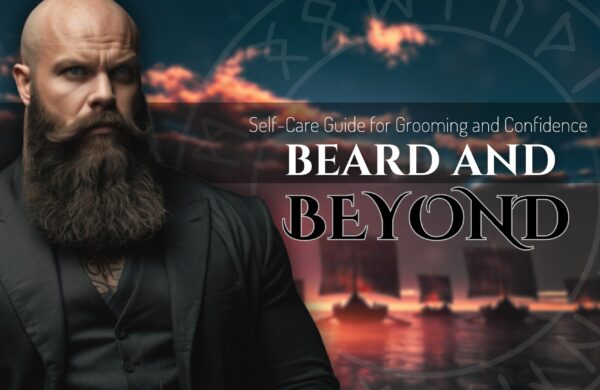Physical self-care is often overlooked, but it’s the foundation for living a healthy, fulfilling life. For men, taking care of your body goes beyond hitting the gym or eating clean for a week—it’s about creating sustainable routines that nurture your physical, mental, and emotional well-being. This guide will delve into the essential aspects of physical self-care, offering actionable advice, expert insights, and practical tips to help you prioritize your health.
Why Physical Self-Care Matters
Taking care of your body is not just about aesthetics or performance; it’s about longevity, energy, and confidence. Here’s why physical self-care is critical:
- Boosts Mental Health: Regular exercise and proper nutrition significantly reduce symptoms of depression and anxiety by balancing hormones and improving brain health.
- Increases Productivity: A well-maintained body enhances focus, stamina, and overall performance.
- Prevents Illness: Self-care helps reduce the risk of chronic illnesses like diabetes, heart disease, and obesity.
- Enhances Confidence: Feeling strong and healthy boosts your self-esteem and encourages positive interactions.
Building a Physical Self-Care Routine
1. Start with Fitness
Physical activity is a cornerstone of self-care. Regular exercise doesn’t just sculpt your body; it strengthens your mind and builds resilience.
Tips for Building a Sustainable Fitness Routine:
- Find What You Enjoy: Whether it’s weightlifting, running, or martial arts, choose activities you genuinely enjoy to stay consistent.
- Mix It Up: Combine cardiovascular, strength, and flexibility training for a balanced routine.
- Set Realistic Goals: Start small and gradually increase intensity to avoid burnout or injury.
- Schedule Workouts: Treat your workouts like meetings—non-negotiable and planned.
Sample Weekly Workout Plan:
- Monday: Strength training (upper body)
- Tuesday: Cardio (HIIT or steady-state)
- Wednesday: Yoga or stretching
- Thursday: Strength training (lower body)
- Friday: Cardio (cycling or running)
- Saturday: Active recovery (hiking or walking)
- Sunday: Rest
For detailed workout plans, check out this resource.
2. Master Nutrition
What you eat fuels your body and mind. Proper nutrition is essential for energy, recovery, and overall health.
Principles of Healthy Eating:
- Prioritize Protein: Include lean protein sources like chicken, fish, eggs, and legumes in every meal.
- Eat Whole Foods: Focus on whole grains, fruits, vegetables, and healthy fats.
- Stay Hydrated: Drink at least 8 glasses of water daily to maintain optimal bodily functions.
- Limit Processed Foods: Minimize sugar, trans fats, and overly processed snacks.
Sample Day of Eating:
- Breakfast: Scrambled eggs, whole-grain toast, and avocado.
- Lunch: Grilled chicken salad with olive oil dressing.
- Snack: Greek yogurt with nuts and berries.
- Dinner: Baked salmon, quinoa, and steamed broccoli.
- Evening Snack: A small handful of mixed nuts.
For more on meal planning, visit ChooseMyPlate.gov.
3. Grooming and Hygiene
Grooming isn’t just about looking good—it’s about feeling good and maintaining health.
Essential Grooming Practices:
- Skincare: Cleanse, exfoliate, and moisturize your face daily to keep your skin healthy.
- Haircare: Use products suited for your hair type and get regular haircuts.
- Oral Hygiene: Brush twice a day, floss daily, and visit the dentist regularly.
- Body Care: Shower daily, use deodorant, and consider moisturizing to prevent dry skin.
Grooming Checklist:
- Invest in quality grooming tools (e.g., razors, trimmers).
- Use sunscreen daily to protect your skin from UV damage.
- Keep nails trimmed and clean.
For grooming tips, check out GQ’s Grooming Guide.
4. Prioritize Sleep Hygiene
Sleep is the foundation of recovery and productivity. Poor sleep habits can derail your self-care efforts.
Tips for Better Sleep:
- Stick to a Schedule: Go to bed and wake up at the same time daily, even on weekends.
- Create a Sleep-Friendly Environment: Keep your room dark, cool, and quiet.
- Limit Screen Time: Avoid screens for at least an hour before bed to reduce blue light exposure.
- Relax Before Bed: Engage in calming activities like reading or meditation.
Sleep Hygiene Checklist:
- Use blackout curtains.
- Avoid caffeine in the afternoon.
- Invest in a comfortable mattress and pillows.
Learn more about improving sleep hygiene at Sleep Foundation.
5. Stress Management
Stress can take a toll on your physical health, leading to issues like high blood pressure, weight gain, and insomnia.
Effective Stress-Relief Techniques:
- Exercise: Physical activity releases endorphins that combat stress.
- Meditation: Practice mindfulness or guided meditation to calm your mind.
- Hobbies: Engage in activities that bring you joy and relaxation.
- Connect: Spend time with friends, family, or support groups.
Daily Stress-Relief Routine:
- Start your day with 5 minutes of deep breathing.
- Take a 10-minute walk during lunch.
- Practice gratitude journaling before bed.
Explore mindfulness techniques at Headspace.
6. Stay Consistent
Consistency is the key to reaping the benefits of physical self-care. Building habits takes time, but the payoff is worth it.
Tips for Staying Consistent:
- Track Your Progress: Use a journal or app to monitor your habits and improvements.
- Reward Yourself: Celebrate milestones to stay motivated.
- Stay Flexible: Adapt your routine to life’s challenges without guilt.
- Seek Support: Join communities or find an accountability partner.
For habit-building advice, read Atomic Habits by James Clear.
Conclusion
Physical self-care is not a luxury; it’s a necessity. By committing to fitness, nutrition, grooming, sleep hygiene, and stress management, you’ll not only improve your physical health but also enhance your confidence, energy, and overall quality of life. Start small, stay consistent, and remember that investing in yourself is the best investment you can make.



